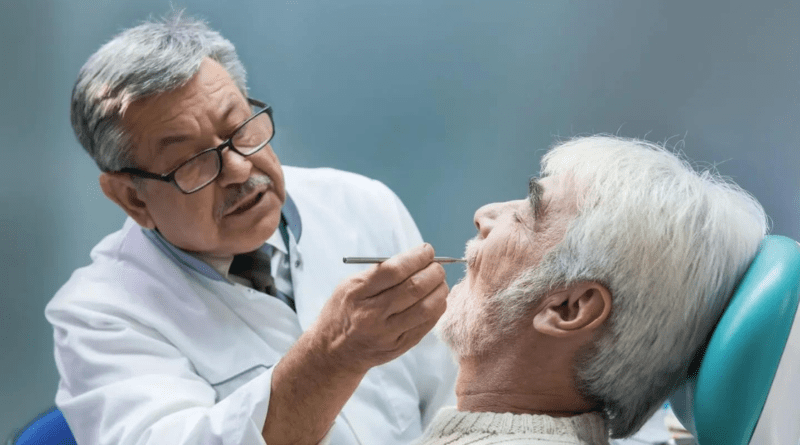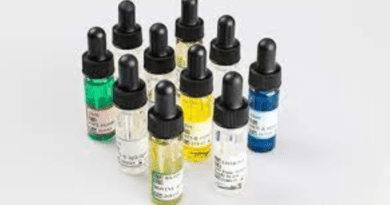Why No Dairy After Dental Implant: A Comprehensive Guide
Dental implants have emerged as a revolutionary solution for those grappling with missing teeth in the realm of dental health and oral hygiene. Whether you’re missing a single tooth or multiple teeth, dental implants offer a lifelike replacement that restores your smile and enhances your oral health. However, the journey to achieving a perfect smile doesn’t end with the implant surgery. It involves a post-operative care regimen; one aspect of this care is restricting dairy products for a certain period. This comprehensive guide will delve into why dairy should be avoided after dental implant surgery, provide you with a step-by-step post-implant care plan, and address some frequently asked questions to ensure a smooth recovery process.
Understanding the Importance of Dental Implant Aftercare
Dental implant surgery is a highly specialized procedure that involves the insertion of an artificial tooth root into the jawbone. This titanium root is a sturdy foundation for a replacement tooth or crown. While the surgery is crucial for implant success, the aftercare and recovery are equally vital. After a dental implant, patients are often advised to make particular lifestyle and dietary changes to ensure the implants integrate seamlessly with the jawbone. One such nutritional change is the temporary avoidance of dairy products.
Why No Dairy After Dental Implant Surgery?
The prohibition of dairy products post-dental implant surgery is not arbitrary; it is grounded in scientific reasoning and the desire to promote optimal healing and osseointegration. Osseointegration is when the implant fuses with the surrounding bone tissue, creating a solid foundation for the prosthetic tooth. Let’s explore the key reasons behind avoiding dairy during this crucial recovery period:
- Calcium and Dairy Products: Calcium is an essential mineral for bone health, and dairy products are known for their high calcium content. However, immediately after dental implant surgery, minimizing your calcium intake from dairy sources is essential. This is because dairy products can be acidic and may promote inflammation, hindering the initial healing process.
- Risk of Infection: Fresh dairy products like milk and yogurt can be a breeding ground for bacteria if not handled and stored correctly. In the vulnerable post-surgery period, the risk of infection should be minimized. Consuming dairy products that are not pasteurized or handled with utmost hygiene can increase the chances of infection around the implant site.
- Interference with Medications: It’s common for patients to be prescribed antibiotics and pain medications following dental implant surgery. Dairy products can interfere with the absorption of certain medicines, reducing their effectiveness. It’s best to avoid dairy during this period to ensure that your medications work as intended.
- Soft Diet Requirement: In the immediate aftermath of dental implant surgery, patients are often advised to stick to a soft diet to prevent any damage to the surgical site. Dairy products like hard cheeses and ice cream can be abrasive and may cause discomfort or damage to the surgical area.
- Reduced Swelling and Inflammation: Dairy products can contribute to inflammation in some individuals, exacerbating post-surgical swelling and discomfort. To promote a more comfortable and faster recovery, minimizing foods that may cause inflammation is advisable.
The Dairy-Free Diet: What to Eat Instead
Now that we understand why it’s important to avoid dairy after dental implant surgery let’s explore some alternative food options that can support your healing process and provide the necessary nutrients:
- Leafy Greens: Spinach, kale, and other leafy greens are excellent sources of calcium without the acidity found in dairy products. Incorporate these into your meals to ensure you get the calcium your body needs for bone health.
- Fortified Non-Dairy Milk: Many dairy alternatives like almond, soy, and coconut milk are fortified with calcium and vitamin D. These can be suitable replacements for regular milk during your recovery.
- Soft Proteins: Soft proteins like eggs, tofu, and well-cooked fish are easy to consume and provide essential nutrients for healing. Be sure to prepare them in a way that avoids any potential irritation to the surgical site.
- Fruits: Fresh fruits are packed with vitamins and antioxidants that can aid in the healing process. Opt for softer options like bananas, avocados, and berries.
- Vegetable Soups: Homemade vegetable soups are nutritious and easy to consume while adhering to a soft diet. They can provide a warm and comforting option during your recovery.
Post-Implant Care: A Step-by-Step Guide
Now that you know why it’s important to avoid dairy and what alternatives to include in your diet, let’s outline a step-by-step guide to post-implant care:
1. Follow Your Dentist’s Instructions
Your dentist will provide you with specific post-surgery instructions tailored to your case. This may include guidelines on oral hygiene, medication usage, and dietary restrictions. Adhere to these instructions diligently.
2. Maintain Excellent Oral Hygiene
Gentle oral hygiene is crucial to prevent infection and complications. Rinse your mouth with a mild saltwater solution and avoid vigorous brushing near the surgical site.
3. Monitor for Signs of Infection
Keep a close eye on the implant site for any signs of infection, such as increased pain, swelling, or discharge. If you notice any of these symptoms, contact your dentist immediately.
4. Stick to a Soft Diet
As mentioned earlier, maintain a soft diet for the recommended duration. Avoid hard, crunchy, or excessively spicy foods, as they can irritate the surgical area.
5. Stay Hydrated
Proper hydration is essential for overall health and healing. Drink plenty of water to aid in the recovery process.
6. Attend Follow-Up Appointments
Regular follow-up appointments with your dentist are crucial. These appointments allow your dentist to monitor your progress and make any necessary adjustments to your treatment plan.
7. Avoid Smoking and Alcohol
Smoking and excessive alcohol consumption can slow healing and increase the risk of complications. It’s best to avoid these habits during your recovery.
8. Gradually Reintroduce Dairy
Once your dentist gives you the green light, you can gradually reintroduce dairy products into your diet. Start with small amounts and observe how your body responds.
FAQ: Addressing Common Concerns
1. Can I consume dairy alternatives like lactose-free milk after dental implant surgery?
Yes, lactose-free milk is generally a safe option as it lacks the lactose that can potentially cause digestive issues post-surgery. However, be cautious of any additives or flavorings irritating the surgical site.
2. How long should I avoid dairy after dental implant surgery?
The duration of dairy avoidance may vary from patient to patient and depends on your dentist’s recommendations. Avoiding dairy for at least the initial two weeks post-surgery is typically advisable.
3. Can I eat yogurt after dental implant surgery?
While yogurt is a dairy product, some patients may tolerate it better than others. If your dentist approves, you can consider consuming plain, unsweetened yogurt containing probiotics that can benefit oral health.
4. Are there any specific calcium supplements I should take during my recovery?
Your dentist may recommend calcium supplements if they believe it’s necessary for your recovery. Always consult with your healthcare provider before adding any accessories to your diet.
5. Can I have ice cream during the soft diet phase?
Ice cream is famous for those on a soft diet, but moderation is essential. Opt for smooth, non-acidic flavors, and avoid toppings or mix-ins that may be hard or crunchy.
6. Is drinking hot beverages like tea or coffee safe after dental implant surgery?
Hot beverages are generally safe, but be mindful of the temperature. Scorching drinks can cause discomfort or irritation to the surgical area. Allow them to cool to a comfortable temperature before sipping.
7. Can I resume my regular diet immediately after the healing period?
It’s essential to transition back to your regular diet gradually. Please consult your dentist to determine when it’s safe to reintroduce hard or crunchy foods.
8. What signs indicate a successful implant integration (osseointegration)?
A successful implant integration includes stability, absence of pain, and healthy gum tissue around the implant. Your dentist will assess these factors during follow-up appointments to confirm the procedure’s success.
Conclusion: A Dairy-Free Recovery for Dental Success
In the journey to reclaiming your smile through dental implants, the post-operative phase is just as crucial as the surgical procedure. Avoiding dairy products during this period is a measure designed to optimize your healing and promote the successful integration of the implant with your jawbone. While it may require some adjustments to your diet, the long-term benefits of a strong, stable dental implant far outweigh the temporary dietary restrictions.
Remember that every patient’s recovery is unique, and following your dentist’s guidance closely is essential. By adhering to their recommendations and maintaining a dairy-free diet for the prescribed duration, you’re taking proactive steps toward achieving a healthy, confident smile that lasts a lifetime.




